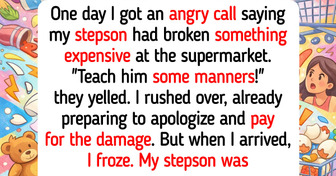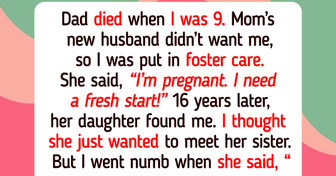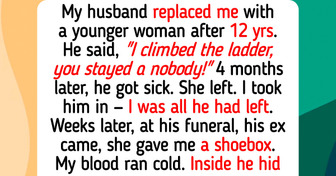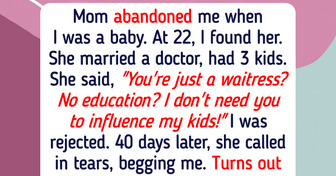10 Toxic Parents Disguised in Cartoon Characters That Could Send Any Kid to a Psychotherapist

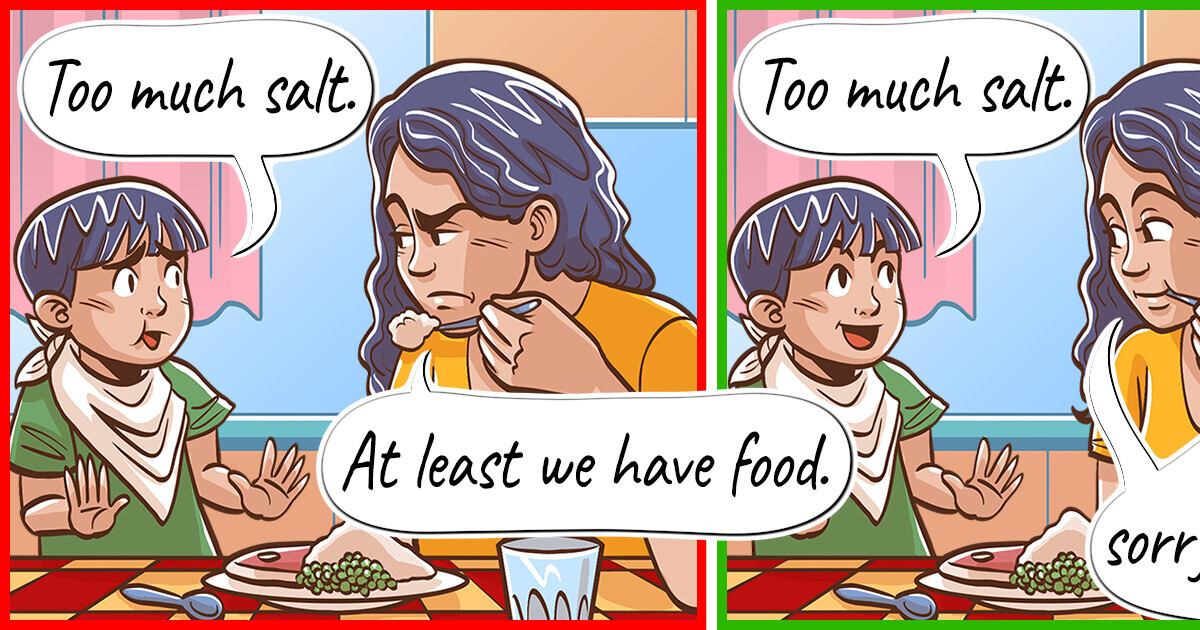
Every parent wants the best for their child and dreams of giving them a future they never had. However, actions meant to help can sometimes have the opposite effect. Whether due to unintentional habits or following outdated parenting practices, things don’t always go as planned.

Every parent wants to protect their child and provide a safe childhood and future. However, shielding them from all risks can hinder their ability to build resilience and solve problems. Let them face manageable challenges to grow stronger.
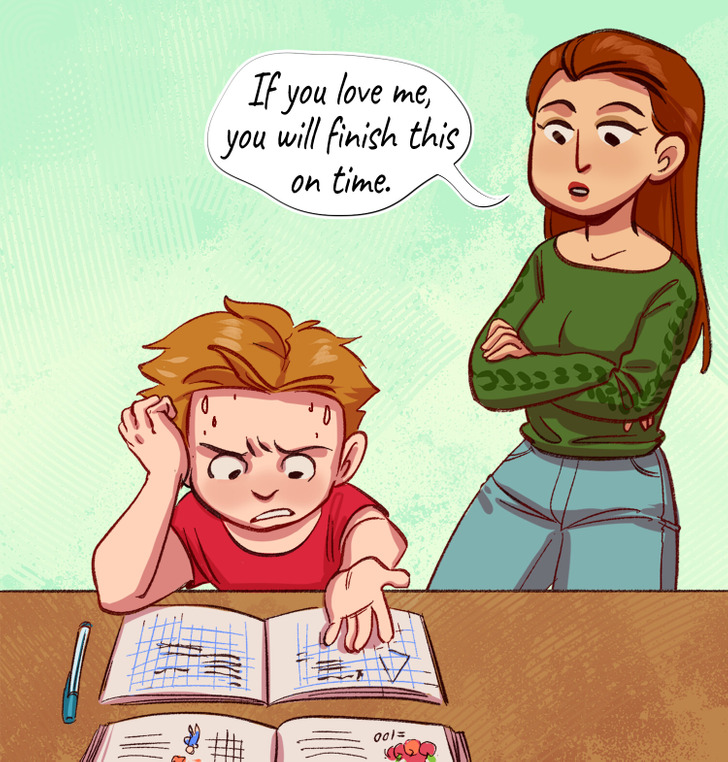
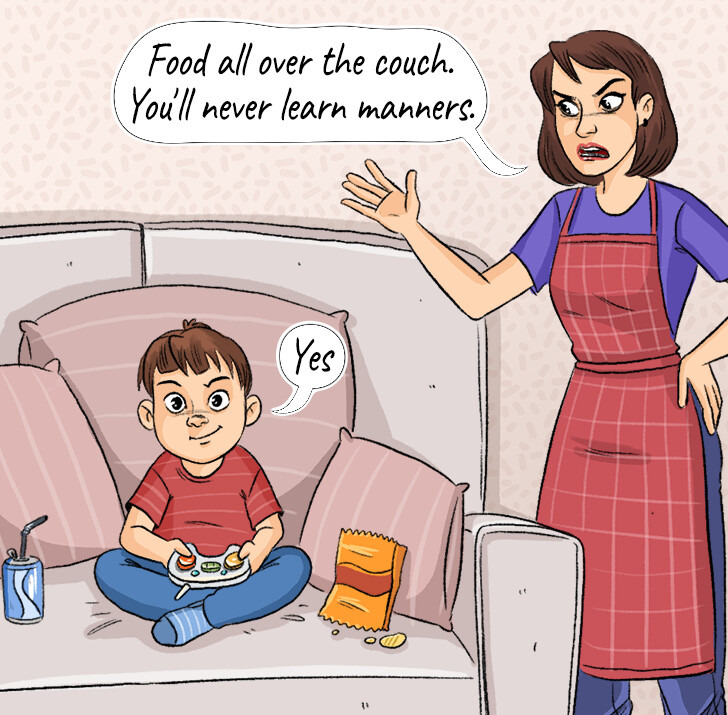
Mistakes are natural and essential for learning. Reacting harshly to a child’s errors can discourage them from trying new things. Stay patient and use mistakes as opportunities to teach and grow.
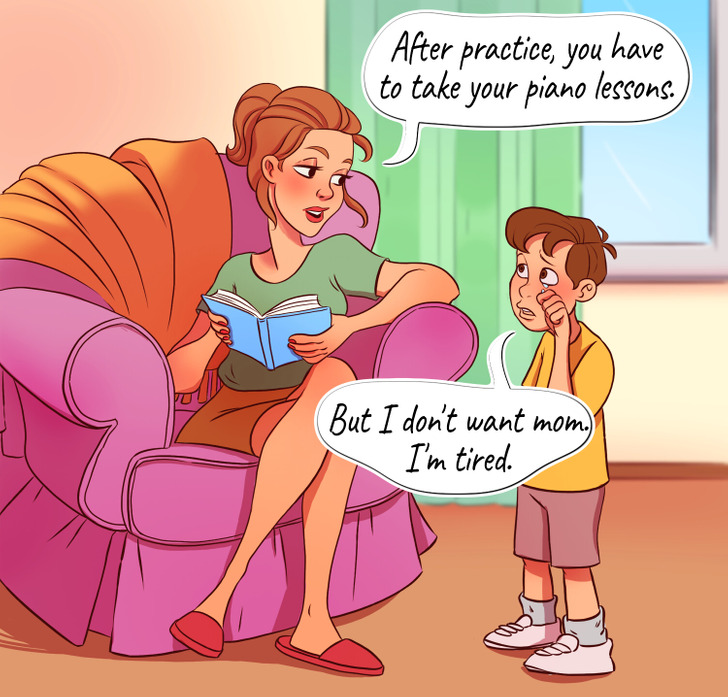
Parents often try to help their children socialize and gain knowledge from an early age by filling their schedules with activities. While well-intentioned, this approach can leave little room for rest and unstructured play, which are essential for a child’s overall development and well-being.
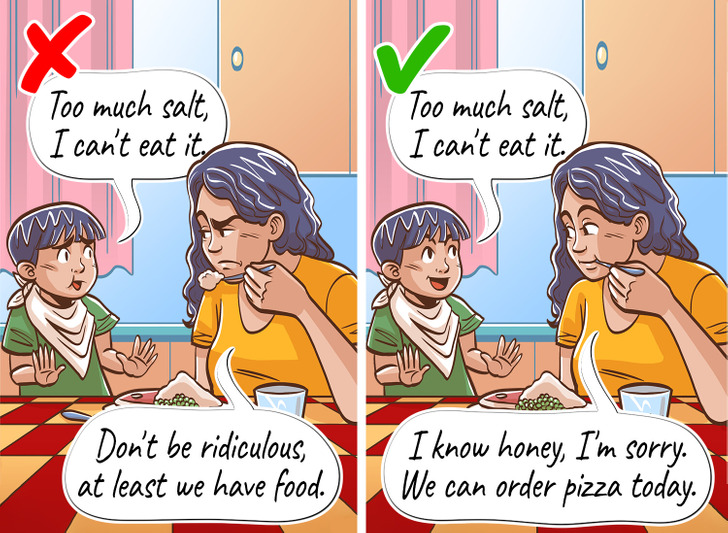
Making mistakes is human; no one is born knowing everything. What matters is taking responsibility. Failing to apologize when wrong, teaches children to avoid accountability. Show them that mistakes are opportunities to learn.

While this may sound odd, your child is not your friend. Sharing adult problems, like financial woes or marital issues, can make children feel anxious or responsible for fixing things. Protect their sense of security.
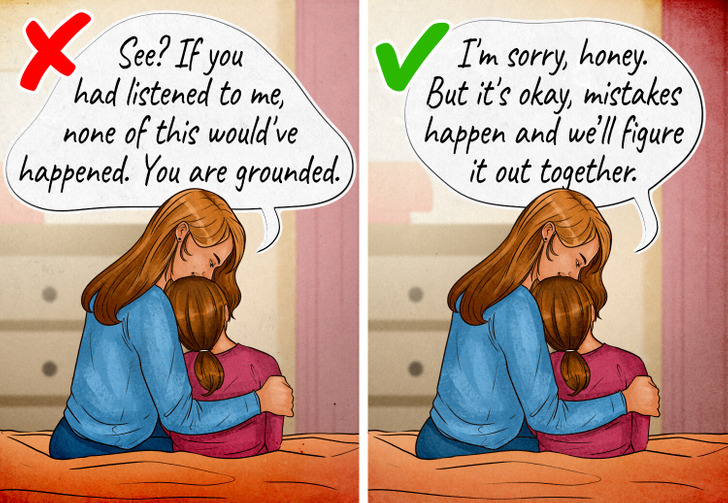
Another common mistake is treating children differently for the same behavior, whether due to stress, fatigue, or mood swings. Inconsistent rules confuse children and weaken their trust. Stay consistent to maintain authority and clarity.
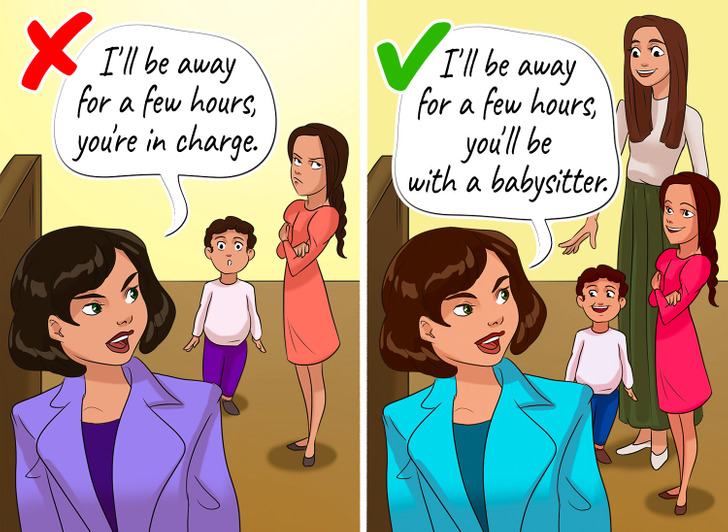
Forcing children to grow up too quickly can take away their childhood. Older kids shouldn’t be expected to babysit siblings just because they’re seen as more responsible. Let them be kids while gradually teaching responsibility. Pushing too much too soon may even discourage them from wanting children in the future.
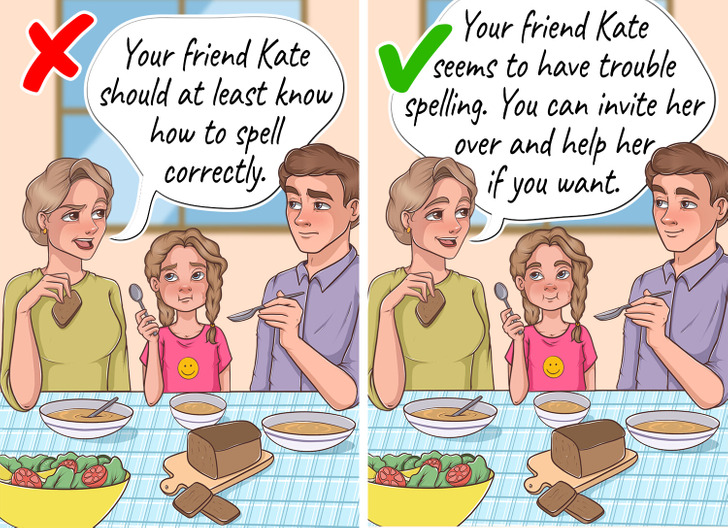
Harshly judging their friends can change the child’s behavior. Dismissing their views or holding prejudices based on appearances or past mistakes can worsen the situation. Instead, guide them calmly by discussing potential risks and offering advice rather than outright disapproval.

Focusing only on grades can make children feel valued solely for achievements. Celebrate their kindness, creativity, and effort just as much. Grades are temporary, but good character lasts forever.
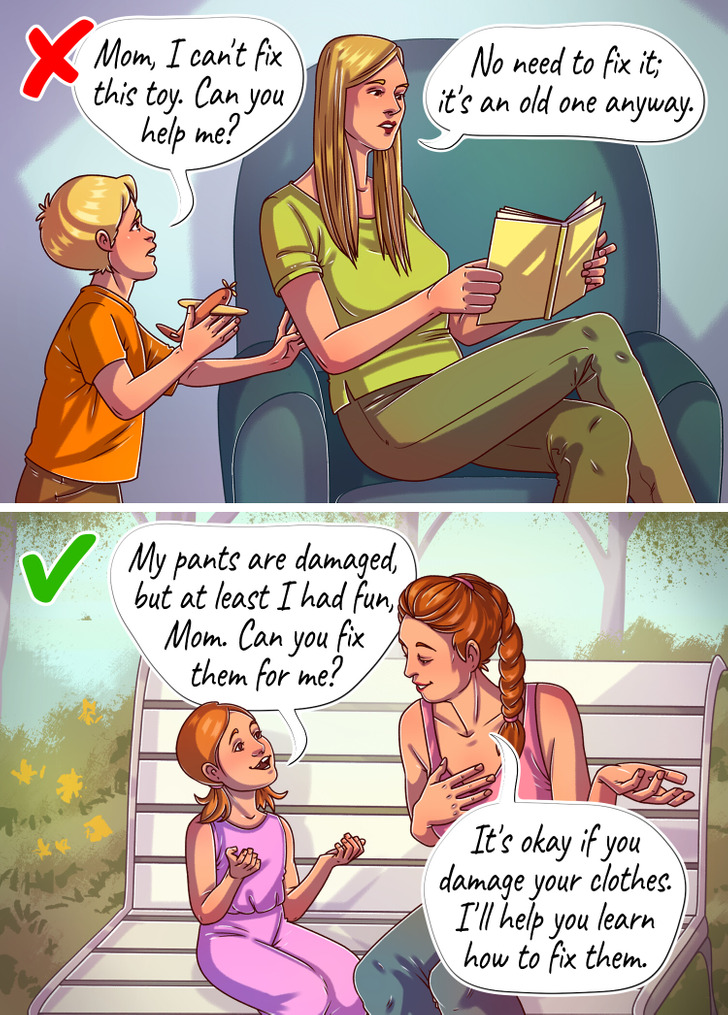
It’s important to make eye contact when talking to children or when they speak to you. Without it, they may feel ignored or unimportant. Show them your full attention.
Parents often seek ways to ensure their children’s success and happiness, but outdated methods or common parenting mistakes can backfire, leading to unexpected challenges, including future money issues.


